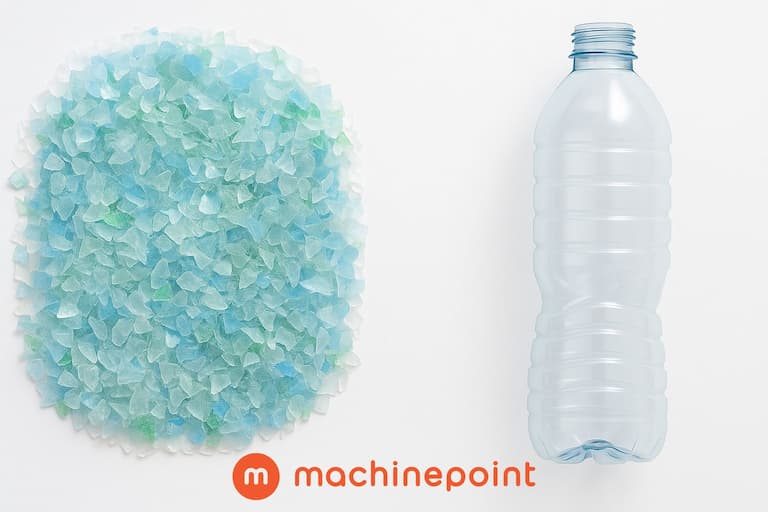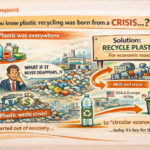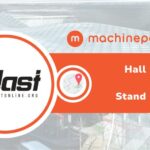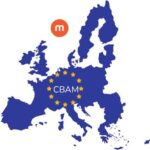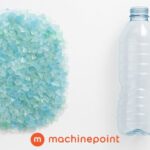PET (polyethylene terephthalate) recycling has become a cornerstone of the circular economy for plastics. Recycled PET flakes have emerged as a critical raw material for both bottle-to-bottle production and textile applications. This growing demand has driven the need for efficient and reliable recycling machinery both new and second-hand.
In this context, MachinePoint plays a key role by facilitating access to high-quality PET recycling lines, helping recyclers optimize their investments and adapt to an increasingly demanding market.
What Are PET Flakes and How Are They Produced?
PET flakes are plastic fragments derived from post-consumer or pre-consumer PET bottles. They are typically produced through mechanical processes that involve:
- Sorting and classification of PET material – Separating clear, blue, green, or multilayer PET, and removing contaminants like PVC, polyolefins, and metals.
- Shredding – Reducing the material into flakes using grinders or shredders.
- Hot/cold washing – Removing labels, adhesives, dirt, and organic residues.
- Drying and final separation – Centrifugation, thermal drying, and separation by air or flotation to eliminate light impurities.
- Optional: Crystallization and extrusion – For higher-end applications, flakes may be crystallized and extruded into pellets.
The quality of this process determines whether the flakes are suitable for food-grade applications or limited to textile/industrial uses.
Applications of PET Flakes
PET flakes have a variety of industrial applications:
- Bottle-to-Bottle Production
This application requires high-purity flakes that are often treated using decontamination and vacuum extrusion processes, such as SSP (Solid State Polycondensation) reactors. Beverage and food manufacturers use these flakes to lower their carbon footprint.
- Textile Fibers
A significant share of PET flakes goes to the textile industry to produce polyester fibers used in clothing, upholstery, carpets, and thermal insulation. The Asian market—especially China, India, and Vietnam—leads this sector.
- Other Industrial Products
This includes thermoformed trays, strapping tapes, sheets, tubes, and injection-molded components.
MachinePoint’s Role in the PET Recycling Market
MachinePoint provides access to complete lines and individual used PET recycling machines from operational plants in Europe and other mature markets. This presents a strategic opportunity for recycling companies in emerging or expanding regions.
Among the most in-demand equipment MachinePoint can supply are:
- PET washing and separation lines – from brands such as AMUT, SOREMA, and Herbold.
- Shredders and grinders – crucial for producing homogeneous flakes.
- Drying and crystallization systems – including KREYENBORG solutions.
- Extruders and pelletizing systems – to convert flakes into recycled pellets (rPET).
- Optical sorting systems – to ensure material purity and color consistency.
As these are second-hand machines, MachinePoint offers cost-effective solutions, along with support in dismantling, logistics, and transportation helping reduce CAPEX for new recycling plants or expansions.
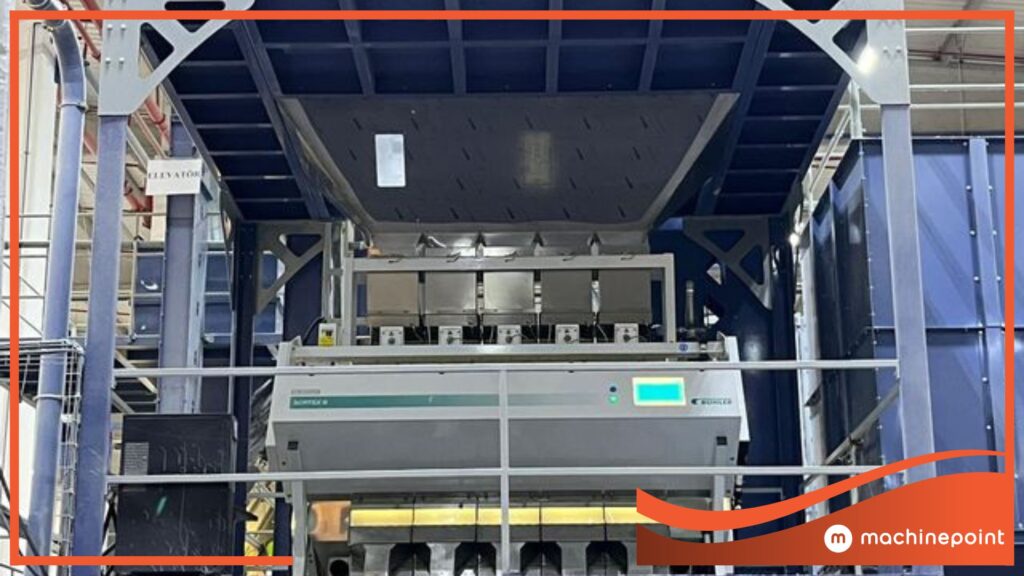
Benefits of Using Recycled PET Flakes
- Lower costs compared to virgin resin.
- Reduced environmental impact – less energy and CO₂ consumption.
- Compliance with sustainability and post-consumer recycling regulations.
- Rising demand from brands committed to using recycled (rPET) packaging.
Technical and Regulatory Challenges
Despite technological advances, challenges remain:
- Cross-contamination with PVC or other plastics.
- Strict food-grade safety regulations.
- Input material variability – quality of collected bottles can vary widely.
In Europe, Regulation (EU) 2022/1616 sets stringent requirements for rPET to be used in food-contact applications, making investment in advanced decontamination technologies essential.
MachinePoint and the global opportunity for PET recycling
The PET recycling market is growing. Demand for high-quality flakes for food and textile applications will continue to rise as governments and consumers push for greater sustainability. In this environment, buying used machinery becomes a fast, cost-effective, and sustainable way to enter or expand within the industry.
With over 25 years of experience in trading industrial equipment, MachinePoint supports clients throughout the entire process whether it’s setting up a washing line, expanding extrusion capacity, or upgrading sorting systems. MachinePoint is the ideal strategic partner for PET recycling projects worldwide.
